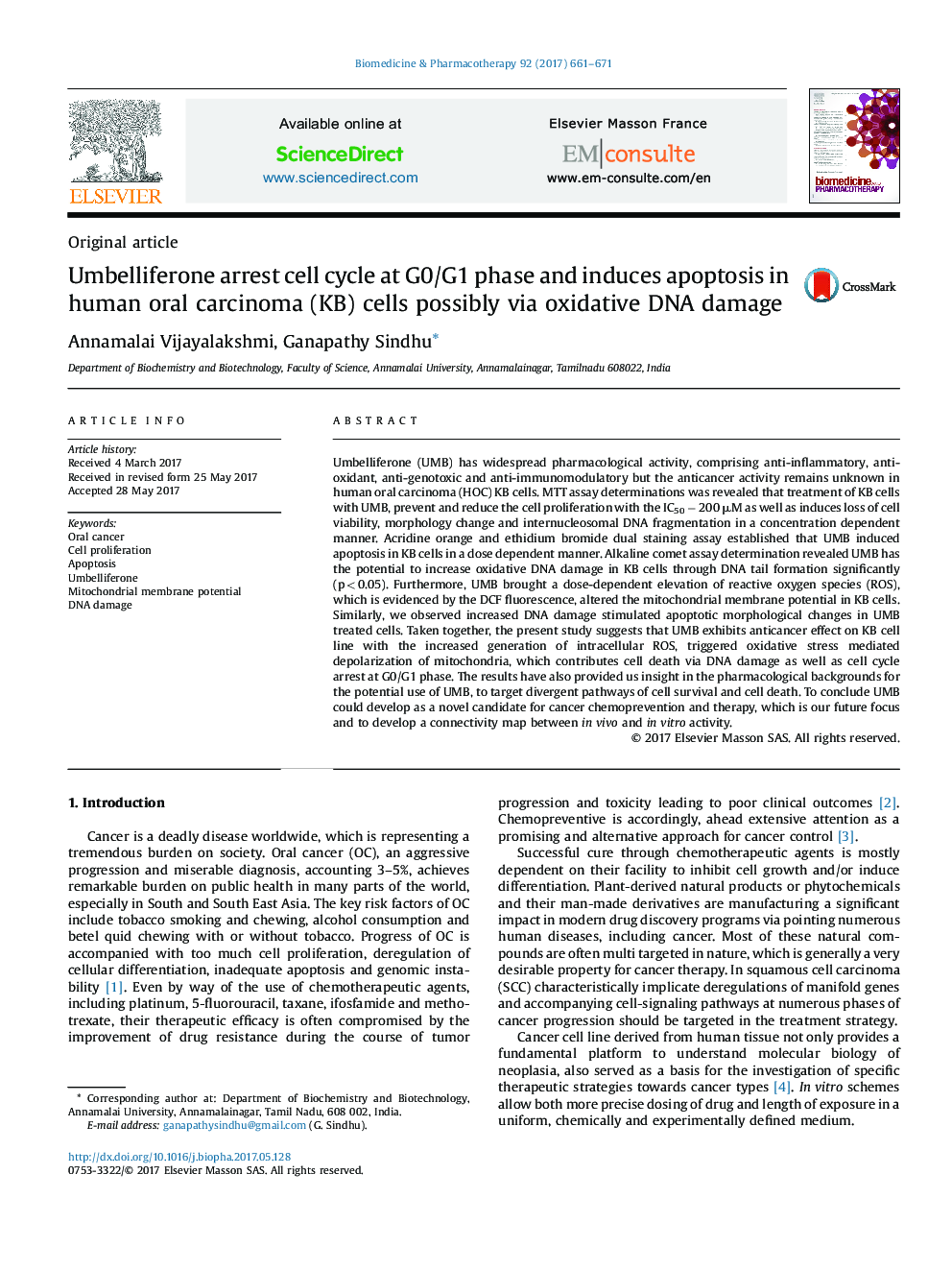| کد مقاله | کد نشریه | سال انتشار | مقاله انگلیسی | نسخه تمام متن |
|---|---|---|---|---|
| 5552778 | 1557950 | 2017 | 11 صفحه PDF | دانلود رایگان |

- UMB produced dose dependent cytotoxicity by increase intracellular ROS in KB cells.
- UMB triggered oxidative stress mediated DNA damage.
- UMB exhibited antitumor activities in KB cells via induction of programmed cell death.
- UMB execute apoptosis in KB cells via altered mitochondrial membrane potential.
- UMB arrest cell cycle at G0/G1 phase in KB cells.
Umbelliferone (UMB) has widespread pharmacological activity, comprising anti-inflammatory, anti-oxidant, anti-genotoxic and anti-immunomodulatory but the anticancer activity remains unknown in human oral carcinoma (HOC) KB cells. MTT assay determinations was revealed that treatment of KB cells with UMB, prevent and reduce the cell proliferation with the IC50 â 200 μM as well as induces loss of cell viability, morphology change and internucleosomal DNA fragmentation in a concentration dependent manner. Acridine orange and ethidium bromide dual staining assay established that UMB induced apoptosis in KB cells in a dose dependent manner. Alkaline comet assay determination revealed UMB has the potential to increase oxidative DNA damage in KB cells through DNA tail formation significantly (p < 0.05). Furthermore, UMB brought a dose-dependent elevation of reactive oxygen species (ROS), which is evidenced by the DCF fluorescence, altered the mitochondrial membrane potential in KB cells. Similarly, we observed increased DNA damage stimulated apoptotic morphological changes in UMB treated cells. Taken together, the present study suggests that UMB exhibits anticancer effect on KB cell line with the increased generation of intracellular ROS, triggered oxidative stress mediated depolarization of mitochondria, which contributes cell death via DNA damage as well as cell cycle arrest at G0/G1 phase. The results have also provided us insight in the pharmacological backgrounds for the potential use of UMB, to target divergent pathways of cell survival and cell death. To conclude UMB could develop as a novel candidate for cancer chemoprevention and therapy, which is our future focus and to develop a connectivity map between in vivo and in vitro activity.
114
Journal: Biomedicine & Pharmacotherapy - Volume 92, August 2017, Pages 661-671